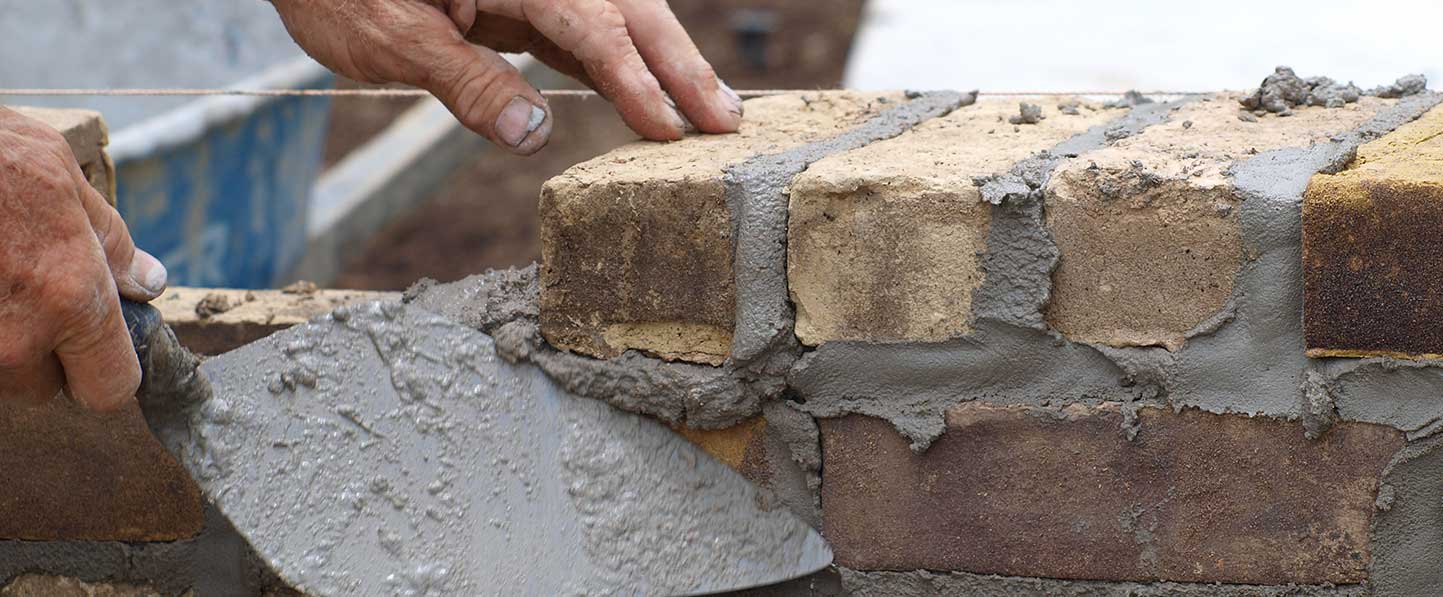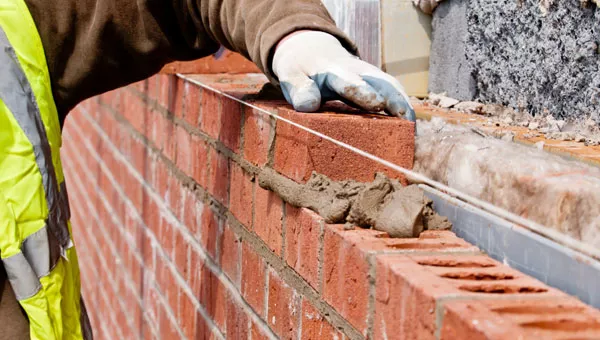Unlocking the Keys of Lasting Stonework Building And Construction Practices for Eco-Friendly Structures
In the realm of contemporary construction, the pursuit of lasting methods has actually come to be vital. Among the myriad methods to environment-friendly building, sustainable stonework building and construction stands apart as a reliable and long lasting method that holds a wide range of untapped potential. From the option of materials to ingenious construction techniques, the keys to attaining sustainability within masonry construction are diverse and fascinating. By discovering the advantages, materials, methods, and future patterns of sustainable masonry, a much deeper understanding of exactly how these techniques can form the future of environment-friendly structures emerges.
Benefits of Sustainable Stonework Building
Welcoming sustainable stonework building methods not only minimizes ecological effect but also provides lasting economic advantages to building contractors and neighborhoods. By making use of products like recycled blocks, obstructs, and rocks, building contractors can dramatically decrease the carbon impact of their projects while promoting source efficiency. In addition, sustainable stonework building and construction methods, such as proper insulation and thermal mass properties, can enhance energy effectiveness within buildings, bring about decreased functional prices in time.
Furthermore, the longevity and durability of stonework frameworks add to long-lasting economic advantages. Buildings created utilizing sustainable stonework methods frequently require much less upkeep and repair, converting to cost financial savings for building contractors and property proprietors. The long life of stonework materials additionally makes certain that frameworks stay stable and safe, lowering the requirement for regular renovations or replacements.
Eco-Friendly Masonry Materials
Utilizing environmentally friendly stonework materials is a pivotal action towards enhancing the sustainability of construction methods and minimizing environmental impact while maximizing long-term financial advantages. Sustainable masonry materials are sourced, created, and utilized in a way that minimizes total environmental effect. Materials such as recycled bricks, reclaimed stone, and sustainable concrete blocks are becoming progressively popular selections for eco-conscious home builders. Recycled blocks, for instance, not just divert waste from land fills however likewise call for much less power to generate contrasted to new blocks. Reclaimed stone provides a distinct aesthetic allure while decreasing the requirement for new quarrying. Lasting concrete blocks incorporate recycled aggregates and may include enhanced insulation buildings, contributing to power effectiveness in structures.
Furthermore, natural materials like adobe, rammed earth, and straw bundles give outstanding thermal mass residential or commercial properties, lowering the need for home heating and cooling energy. These products are typically locally readily available, advertising regional economic climates and lowering transportation-related carbon discharges. By selecting environmentally friendly stonework products, building and construction projects can significantly lower their ecological footprint and contribute to the creation of healthier, extra sustainable built environments.
Energy-Efficient Masonry Methods
Power efficiency plays a critical role in improving the sustainability of stonework building and construction techniques. By executing energy-efficient masonry strategies, building contractors can dramatically reduce the overall power usage of a structure, leading to lower operational costs and a smaller sized environmental footprint. One vital energy-efficient stonework strategy is the use of thermal mass, which involves integrating dense materials like concrete or block right into the building's framework to take in and save heat. This helps control indoor temperature levels, decreasing the demand for mechanical home heating and cooling systems.

Technologies in Sustainable Masonry
Recent innovations in sustainable masonry click to investigate practices have produced innovative methods that are reshaping the building industry. One such technology is the advancement of self-healing concrete, which utilizes microorganisms embedded within the concrete to recover fractures autonomously. This development not only reduces upkeep costs but likewise enhances the longevity of stonework structures, adding to their sustainability.
One more noteworthy advancement is using recycled aggregates in stonework building - masonry contractor. By integrating products such as crushed ceramic waste or recycled glass into concrete mixes, contractors can reduce the ecological influence of building tasks while keeping structural stability. This practice not just diverts waste from garbage dumps yet also saves all-natural resources, making it a crucial advancement in sustainable stonework building and construction
Moreover, the integration of electronic style devices, such as Building Information try this web-site Modeling (BIM), is revolutionizing the way masonry frameworks are intended and built. BIM enables even more exact estimations, lowered product wastefulness, and boosted power effectiveness, ultimately resulting in even more sustainable structure practices. These innovations collectively represent an appealing future for sustainable stonework building in the era of environmentally friendly buildings.
Future Trends in Stonework Sustainability
With the innovative strides made in sustainable masonry techniques, the future fads in masonry sustainability are poised to more revolutionize the building and construction industry. Among the vital trends shaping the future of masonry sustainability is the increased integration of innovation. Advancements such as Building Information Modeling (BIM) and online fact simulations are being made use of to enhance masonry building and construction processes, bring about reduced material waste and boosted power performance in structures.
In addition, the development of unique lasting products is readied to play a significant function in enhancing the eco-friendliness of masonry construction. masonry contractor. Innovations like self-healing concrete, recycled aggregates, and bio-based binders are acquiring traction for their ability to minimize ecological effect while preserving architectural stability

Final Thought
Finally, sustainable masonry building methods supply countless benefits for green structures. By using environmentally friendly products and energy-efficient strategies, stonework can add to a more lasting constructed environment. Technologies in view it lasting stonework are constantly being developed to additionally enhance the ecological efficiency of structures. Looking towards the future, the fad of stonework sustainability is anticipated to grow, bring about more environmentally friendly and energy-efficient construction practices in the years ahead.